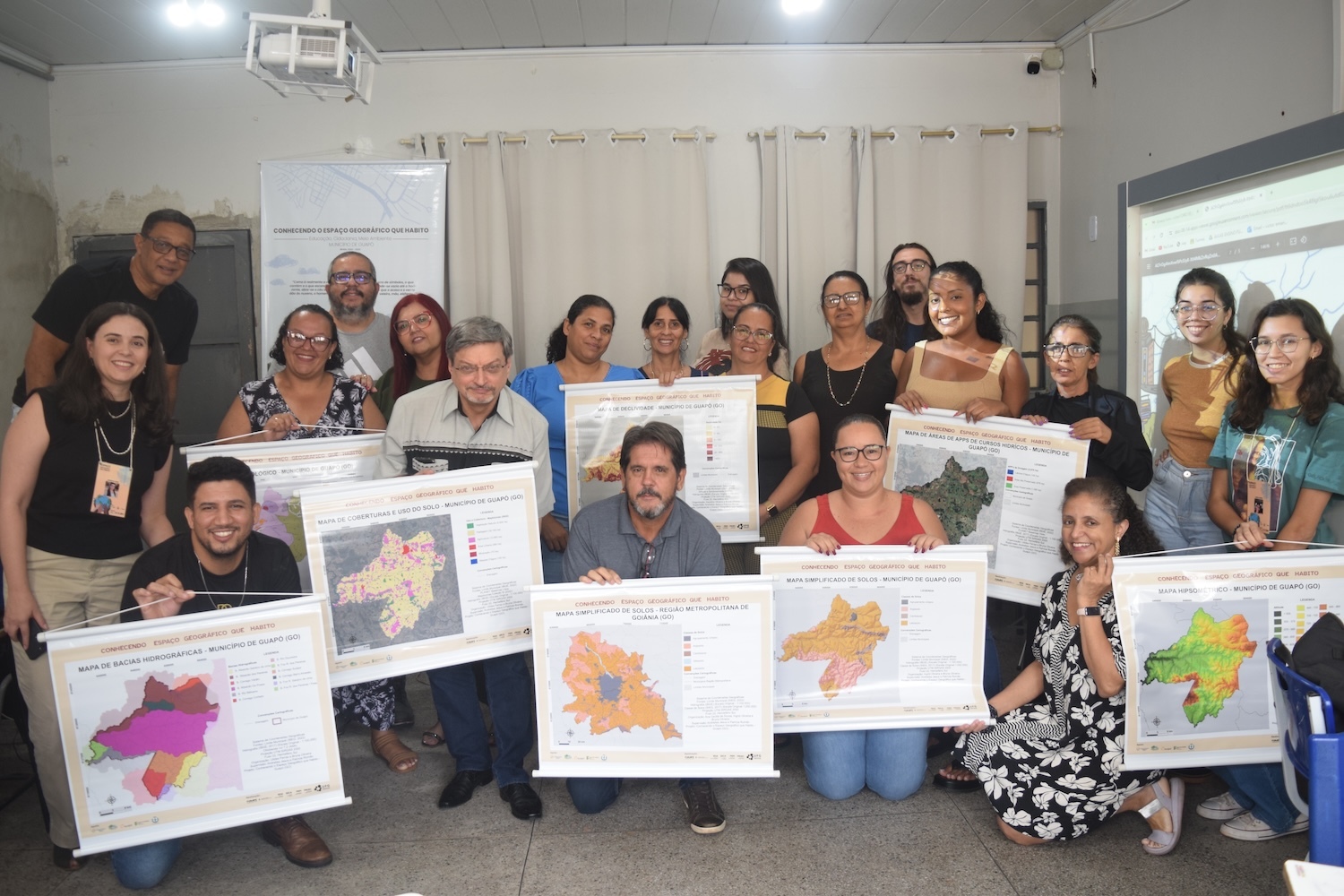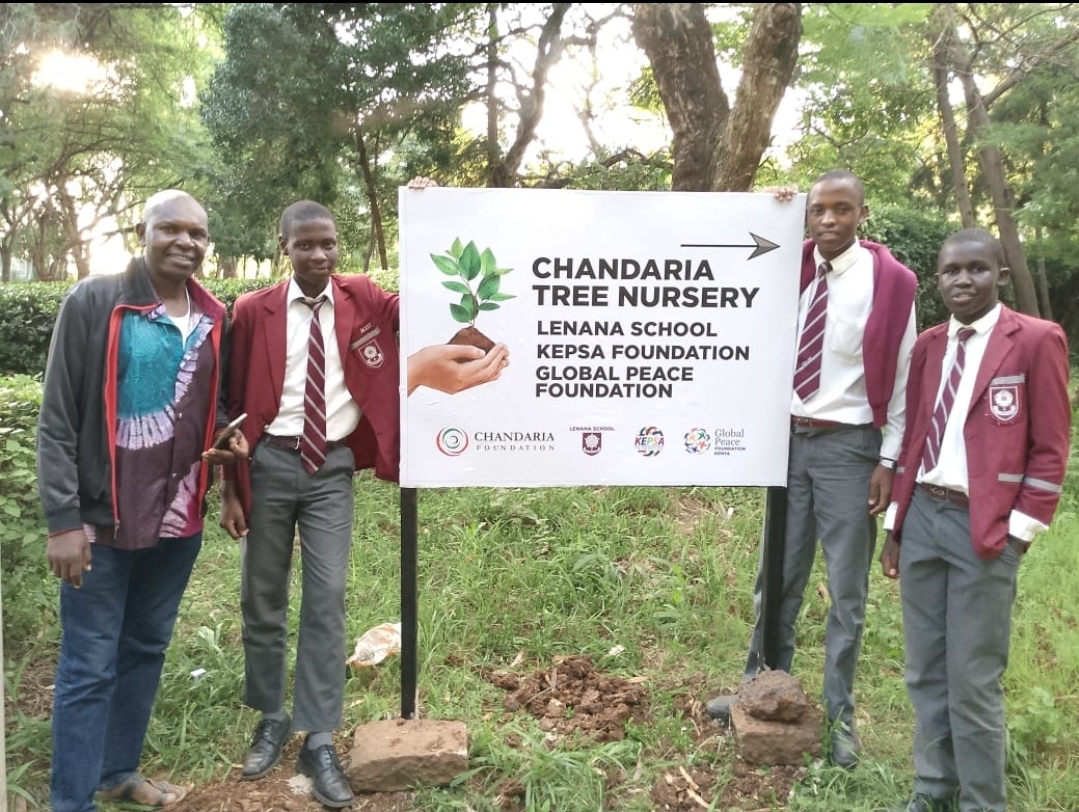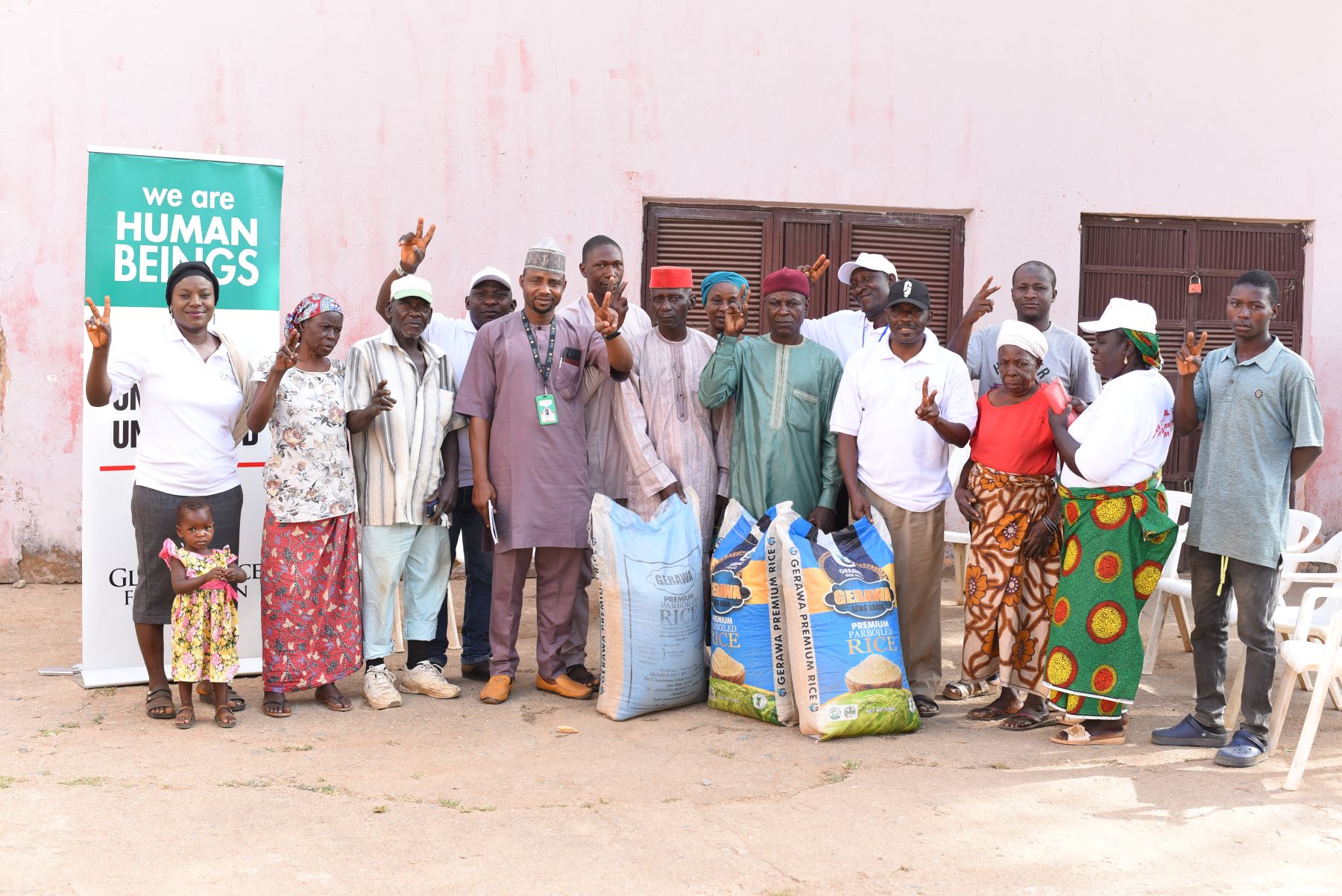GPA Nepal and 10 Partnering Organizations Host Week-long Program, “Water Cooperation for Water Sustainability”
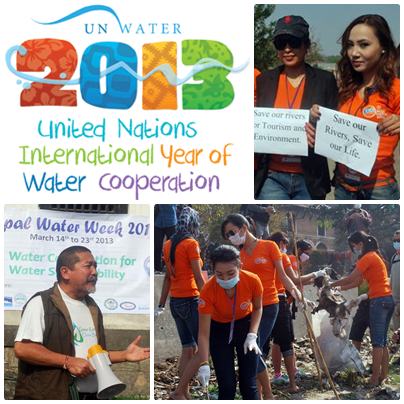
Ms. Nepal contestants support Nepal Water Week 2013 through service work. Below left: Mr. Megh Ale, Founder and President of Nepal River Conservation Trust, addresses volunteers.
In December 2010, the United Nations General Assembly named the year 2013 as International Year of Water Cooperation. In making this designation, the General Assembly recognized that cooperation is essential to reconcile the competing needs and priorities of water use around the world. Because water is a shared resource, water management provides opportunities for cooperation among nations and peoples, using water as an instrument for peace.
World Water Day is held annually on March 22 to focus attention on the importance of fresh water and to advocate sustainable management of fresh water resources. To commemorate World Water Day and the International Year of Water Cooperation, Global Peace Association (GPA) Nepal with support from ten participating organizations organized Nepal Water Week 2013 on the theme “Water Cooperation for Water Sustainability.”
The week of activities, part of GPA Nepal’s River of Peace Campaign, sought to advance collaboration among public sector agencies in conserving the water resources, raise awareness of the threats to clean water from human activities, and encourage ways to adopt sustainable environmental practices.
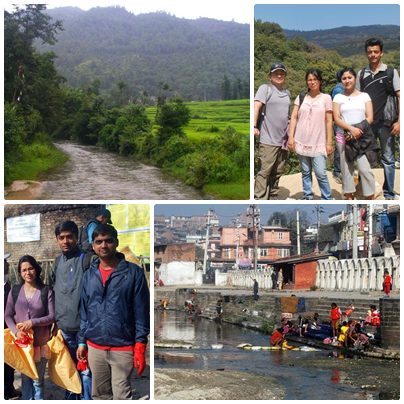
Nepal Water Week participants hiked along the sacred Bagmati River near its pristine source (top) and on the banks of the highly polluted river in Kathmandu.
The inaugural event on March 14—commemorating the International Day of Action for Rivers named by the NGO International Rivers—gathered more than two hundred participants, including the 18 contestants vying for the Ms. Nepal 2013 title. Volunteers, NGO representatives, and Ms. Nepal contestants cleaned the Bagmati River banks and rallied from Kalmochan Ghat to Maitighar, making their voices heard to save the river and setting an example to the public.
Later events—including a hike along the sacred Bagmati River from its pristine source, an Interreligious Assembly on Water Conservation, a forum on the role of youth in water conservation, a service and education program, a football competition, and a rain water harvesting seminar—presented a comprehensive perspective on the status of Nepal’s water resources and the responsibility of citizens to be stewards of the environment.
On the Bagmati River hike, participants expressed dismay at the worsening ecology of the river due to the negligence of residents of settlements near the river. Seeing the contrast between the pristine source and filthy water in the lower river, participants expressed determination to protect and preserve the waterway. They also supported environmental conservation and watershed programs by picking up rubbish on hiking trails.
Later in the week, representatives of different faiths shared insights on conservation. “Religious groups should play a part in raising awareness about the water issues,” said Mr. Keshav Chalagain, general secretary of the Interreligious Council. “Many organizations are working in the field of the conservation of water resources. If different religious groups get involved, they will never stop until all these issues will be resolved.”
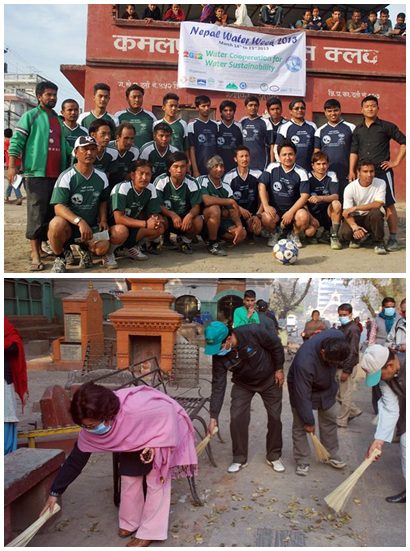
Above: A football match promotes the importance of water conservation; below: participants clean the grounds of the Bhadrakali Temple in Kathmandu as part of Nepal Water Week 2013.
Addressing a youth assembly on conservation, President of the National Youth Federation Mr. Kabindra Burlakoti said that “water resources are drying day by day,” and he urged youth to play a vital role in water resource management.
A service and education program at the renowned Bhadrakali Temple in Kathmandu drew some 120 representatives of different ministries, the military, and volunteers on the sixth day of Nepal Water Week. Dr. Sumitra Amatya, Executive Director of Solid Waste Management Technical Support Centre, Ministry of Local Development, spoke about the importance of water during the program. “Let’s conserve water considering that every day is Water Day, and every day is an Environmental Day,” she said.
On the following days, 300 participants attended a session on rainwater harvesting and an exhibition of rainwater recharging systems in Kathmandu. At a Scientific Conference on Waste Water Treatment, Er. Bhusan Tuladhar, the Regional Technical Advisor of South Asia for UN Habitat, presented findings on the current status of urban waste water management in Kathmandu valley. Ir. Rudd Zwaag, a civil and sanitary engineer from the Netherlands, also shared his experience working on the INDO-DUTCH project to reduce the pollution in Ganges River and improve the living standard of the people of Jajmau, which borders the river.
Nepal Water Week 2013 was hosted with the collaboration of the Center for Integrated Urban development, Himalayan Alliance for Climate Change, Solid waste Management Association, Nepal River Conservation Trust, NGO Federation for Environmental Conservation, Nepal Environment and Tourism Initiative Foundation, National Youth Federation Nepal, Kamal Pokhari Sports Club, One Planet Solution and Smart Paani. It drew the attention of thousands of people and was covered by television and print media.

